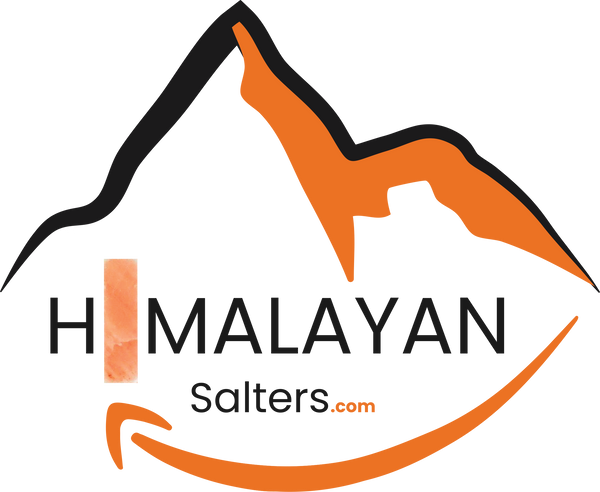Salt therapy, also known as halotherapy, is a natural treatment that involves inhaling salt-infused air in a controlled environment. Salt rooms, or halotherapy rooms, are designed to mimic the natural salt mines and caves that have been used for centuries to improve respiratory health and boost immune system function. This therapy has gained popularity in recent years as a natural, non-invasive way to improve overall health and well-being.

One of the purported benefits of this salt therapy is its ability to strengthen the immune system. The immune system is responsible for protecting the body against infections, diseases, and other harmful pathogens. A strong immune system is essential for overall health and wellness, and there are many factors that can affect its function, such as stress, poor diet, lack of sleep, and environmental toxins.
Exposing the body to salt particles, which are supposed to have antibacterial, antiviral, and anti-inflammatory effects, improves the immune system. The body's natural defense systems, particularly the generation of white blood cells, which are in charge of battling infections, are thought to be stimulated by the salt particles.
There are many different types of salt therapy, but therapy in a salt room built by using pure Himalayan salt bricks is the best. Some salt rooms also incorporate additional therapeutic elements, such as music, aromatherapy, and light therapy, to enhance the overall experience and further promote relaxation and wellness.

The salt cave, which is a chamber entirely covered with salt, is one of the most popular varieties of salt room treatment. The natural salt mines found in regions like Pakistan, Poland, and Ukraine, which have been utilized for their medicinal effects for ages, are sometimes mimicked in salt caves.
While there is still some debate among healthcare professionals about the effectiveness of salt therapy, there is some evidence to suggest that it may have benefits for the immune system. For example, a study published in the International Journal of Chronic Obstructive Pulmonary Disease found that salt therapy was associated with improved lung function and reduced symptoms in patients with chronic obstructive pulmonary disease (COPD). Another study published in the Journal of Allergy and Clinical Immunology found that salt therapy was associated with improvements in airway inflammation and respiratory symptoms in children with asthma.
In addition to its potential benefits for the immune system, it is also believed to have other health benefits. For example, it is thought to be beneficial for the skin, as the salt particles can help exfoliate and moisturize the skin. It is also thought to be beneficial for respiratory health, as inhaling salt particles can help clear mucus and improve breathing.
Exfoliation and moisturization are two ways that salt treatments are said to improve the skin. Typically, natural salts, which are renowned for having high mineral contents, are utilized in salt room treatments. The removal of dead skin cells and impurities by these minerals, which include magnesium, calcium, and potassium, is supposed to help exfoliate the skin and leave it feeling softer and smoother.
The minerals in salt therapy are said to help with skin moisturization. Since salt is hygroscopic, it draws moisture from the atmosphere. in dry or arid locations where the air can be very dry, which can aid in hydrating the skin. It may also have anti-inflammatory and antimicrobial properties that can benefit the skin. For example, salt has been used for centuries as a natural antiseptic and disinfectant. When applied to the skin, salt may help kill bacteria and other pathogens that can cause acne, infections, and other skin conditions.
Furthermore, salt therapy is thought to be particularly beneficial for people with certain skin conditions, such as eczema, psoriasis, and dermatitis. These conditions are characterized by inflammation and irritation of the skin, and salt may help to soothe and reduce these symptoms. In fact, a study published in the International Journal of Dermatology found that halotherapy was associated with improvements in skin inflammation and itchiness in patients with atopic dermatitis.
The minerals found in salt are believed to help improve the skin's barrier function, which is important for maintaining hydration and protecting against environmental stressors. This can lead to smoother, more radiant skin. Inflammation is a common cause of skin issues such as acne, eczema, and psoriasis. Halotherapy may help reduce inflammation by promoting better blood flow and reducing the levels of inflammatory cytokines in the body.
However, it is important to note that this therapy should not be used as a replacement for conventional medical treatment. While it may have some benefits for the immune system and overall health, it is not a cure for any specific disease or condition. If you are experiencing symptoms of illness or have a chronic health condition, it is important to consult with your healthcare provider before trying any new therapies, including salt room therapy.
Summary:
Halotherapy, commonly referred to as salt therapy, is a type of natural medicine that includes breathing air that has been infused with salt in a sterile setting. The natural salt mines and caves that have been utilized for ages to enhance immune system function and promote respiratory health are modeled after salt rooms. It is said that this treatment is good for the immune system and general wellness. Additionally, it is said to enhance the barrier function of the skin, resulting in skin that is smoother and more luminous. It's crucial to remember, though, that traditional medical care should not be substituted with halotherapy.



